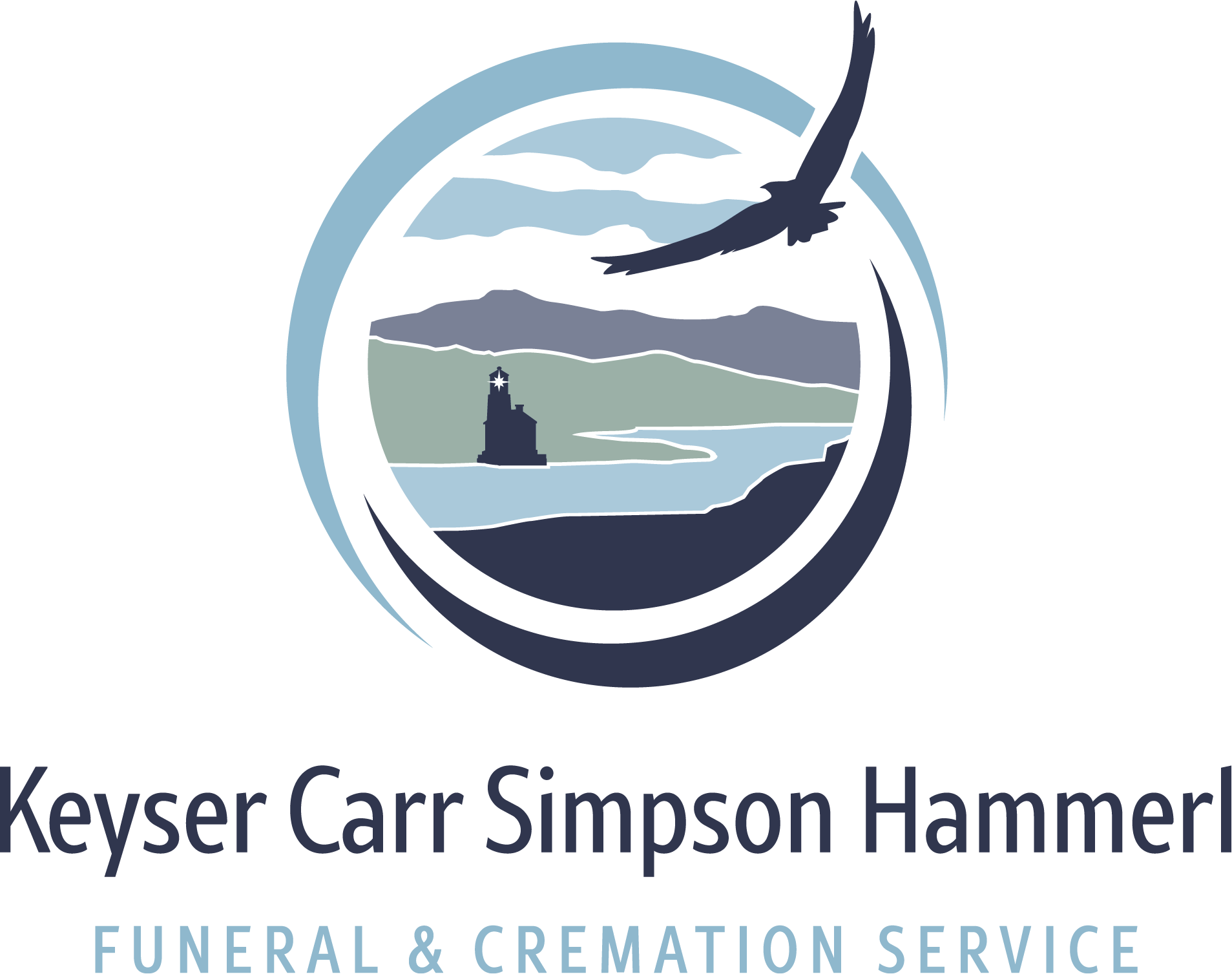Where Not to Scatter Remains
Where Not to Scatter Cremated Remains
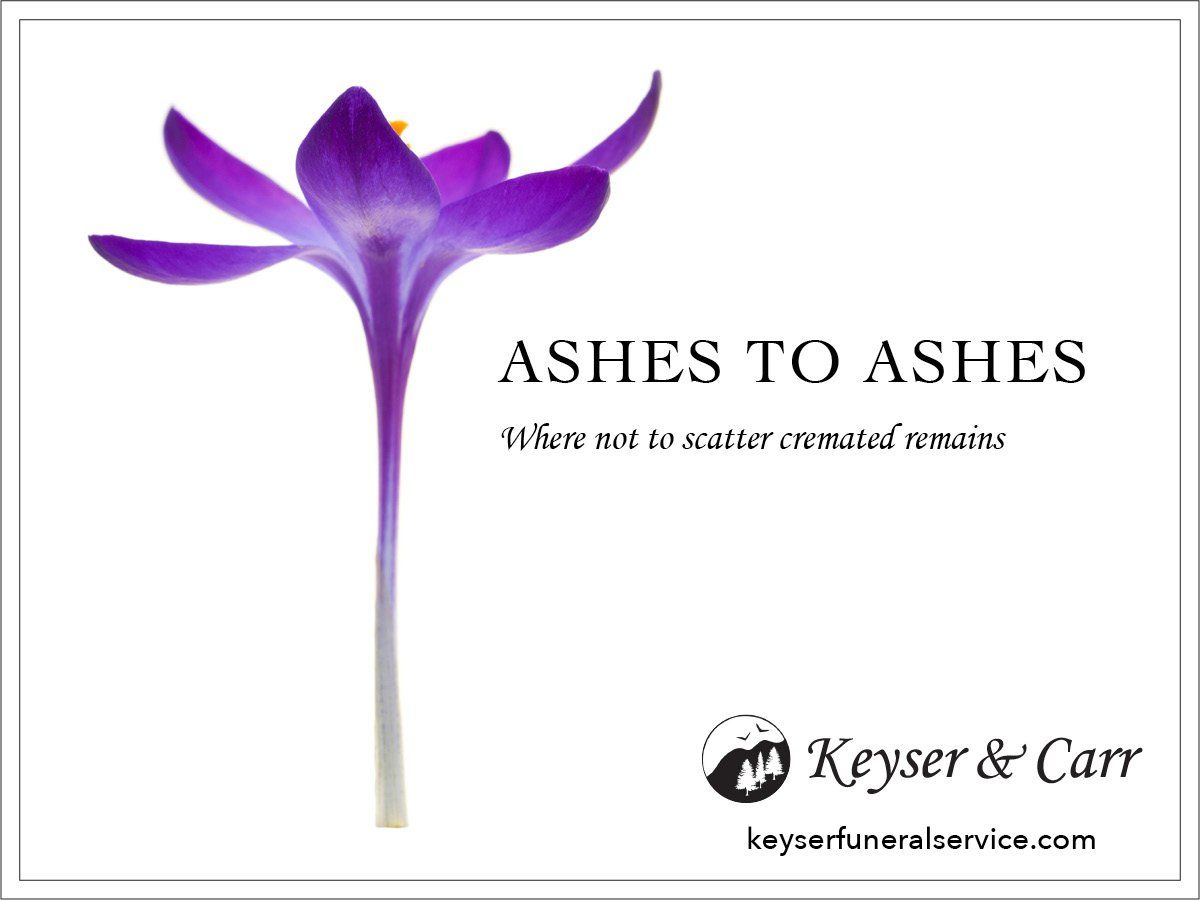
For many folks the absolute “best” final resting place is someplace they loved when they were alive. Their “burial” plan is not to be buried at all, but to be cremated and have their ashes scattered at a special location. For those who prefer scattering there are a wide variety of options available. Still, not every scattering idea is a good idea. To help you determine if your scattering plan is a good plan be sure to consider these four things.
1. Think about the location of your choice. Is it legal and will it work? With permission from the owner of the golf course ashes could be scattered. Without permission scattering on private property that belongs to someone else is not legal and may not go smoothly.
2. As you put together your plan keep in mind scattering does not eliminate emotion. Family members tasked with scattering a loved one’s ashes experience the same emotions as those who stand at the graveside and watch the casket being lowered into the ground. No amount of creativity in the selection of the location will eliminate the emotion of the task.
3. You need a plan. “Just scatter me” is not a plan, it is a shift of responsibility. Someone in your family is going to be required to figure out when and where this scattering will take place if you do not.
4. Seek professional advice. Your funeral director can help you plan and prepare for a successful scattering.
Scattering at sea
There are laws. Federal law protects the oceans. See United States Environmental Protection Agency Burial at Sea for detailed policy information. Scattering in the ocean must take place at least three miles from shore, the ashes can go in, the container may not. That is unless it is biodegradable, then both the container and its contents can be commissioned to the sea. The expense of purchasing a proper biodegradable cremation urn is money well spent. The sea will be moving, maybe a little, or maybe even a lot. A smooth operation is critical to everyone feeling good about the dignity of the ceremony. Your funeral director can help you find a proper container for scattering at sea.
Consider using an offshore scattering service instead of a friend with a boat for the actual ceremony. A service gives your family the benefit of experience. They will know how to position the boat in relation to the wind and waves in order to assure a pleasant experience. Professionals will also be prepared for the needs of the family on board. They will not be surprised or unprepared for sea sickness of guests. Your funeral director is your best resource for finding this kind of service.
Scattering on public lands
States have jurisdiction over public lands and waterways within their boundaries. Laws vary widely from state to state. Be sure to ask your funeral director about the laws in your state. Seek advice and take care to be sure the scattering ceremony your family has planned will not run into an embarrassing roadblock midway into the ceremony. Share your plan and ask for the professional advice of your funeral director.
Scattering on private property
Scattering on private property requires the permission of the property owner. Resist the temptation to skip the permission step. Scattering on property that is not your own without permission is a recipe for disaster.
In addition to giving careful consideration to the scattering location it is always a good idea to consider the feelings of the mourners. It is easy to move forward with the desire of the deceased to be scattered and still satisfy the needs of mourners who may not be entirely comfortable with scattering. All that is required is good communication. Talk to your family about your plan well in advance. Find out who is and who may not be comfortable with your desire.
One of the lovely things about cremation is that the ashes can easily be divided. A family member can retain a small portion of the remains in a keepsake urn, garden bench, paperweight or even a piece of cremation jewelry. The remainder can then be scattered according to the wishes of the deceased.
One final consideration if you are thinking of leaving your family scattering instructions -be sure to think it through. Consider how your desire will play out for at least the next two or three generations. Will your beloved garden still be in the family? Or might the property be sold? Who will keep the urn after your wife dies, how about after your daughter dies? Think about how those who mourn you may be impacted by your desire to be scattered.




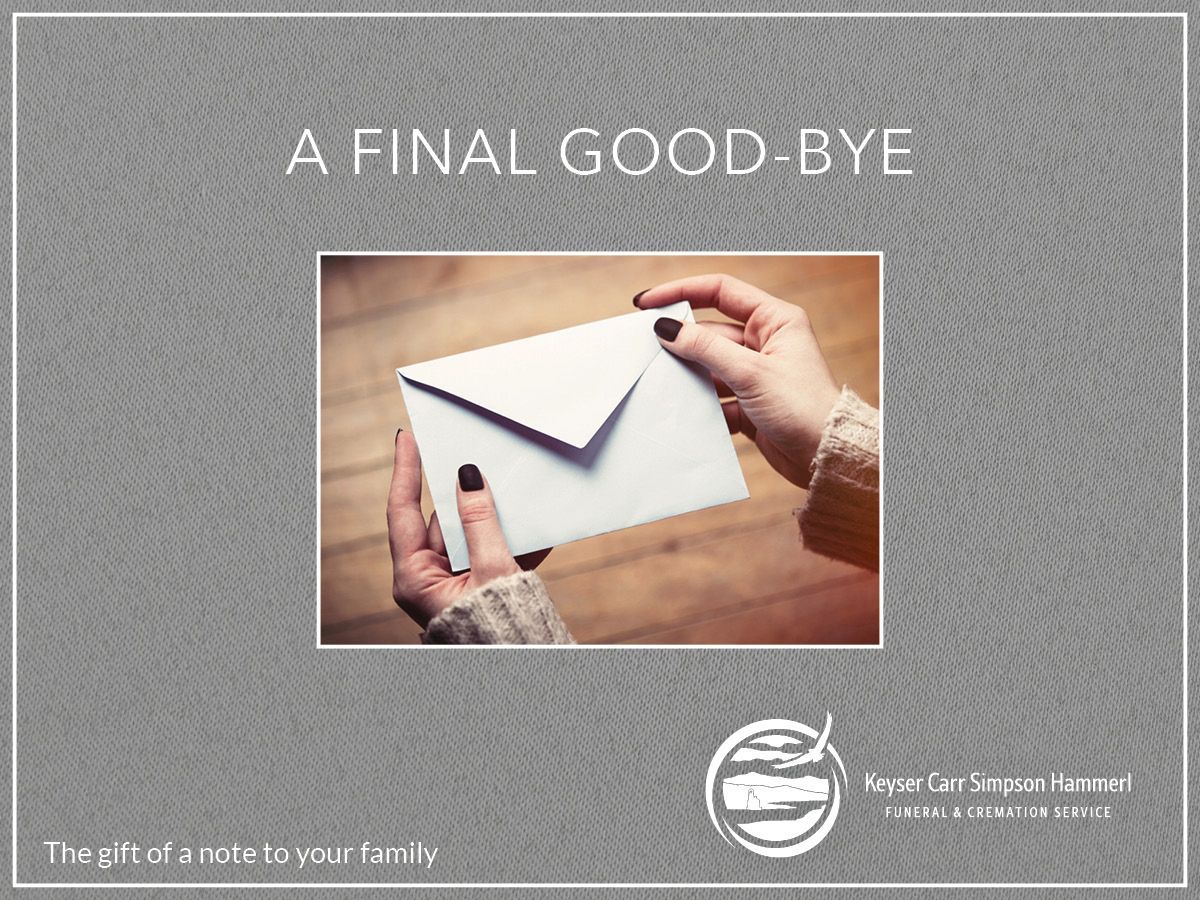

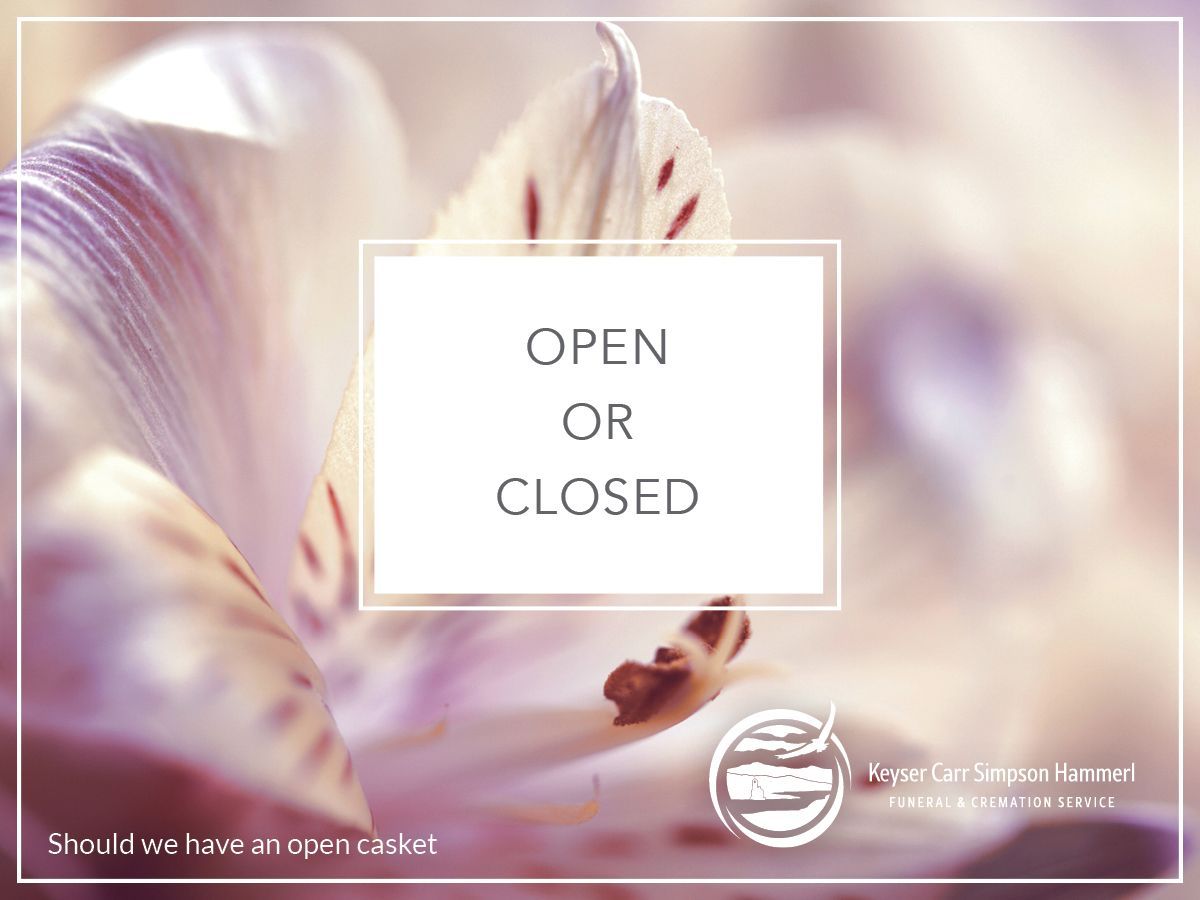

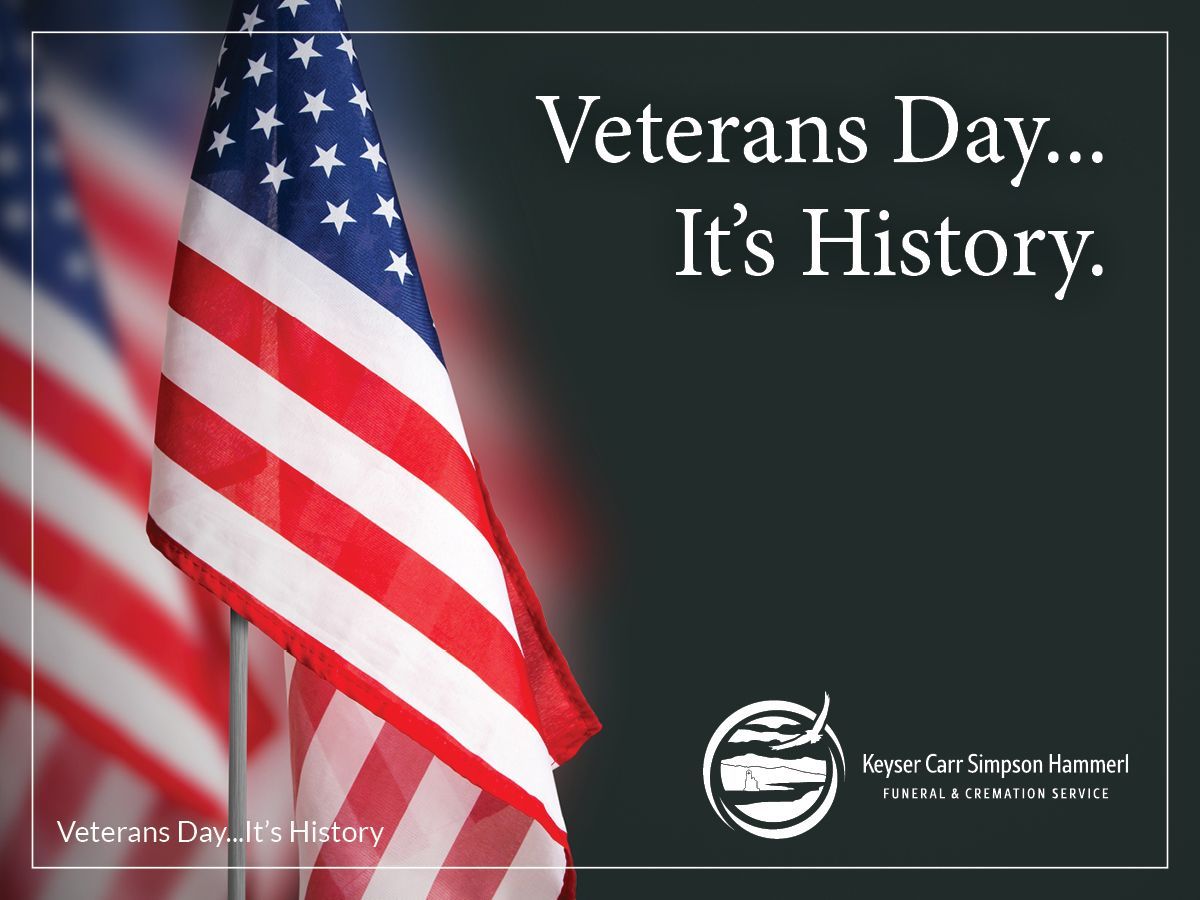
Keyser Carr Simpson Hammerl Funeral & Cremation Service
About Us
Obituaries
Services
Keyser Funeral & Cremation Service, Inc
A Carr & Son Funeral Home
Simpson - Hammerl Funeral Home


